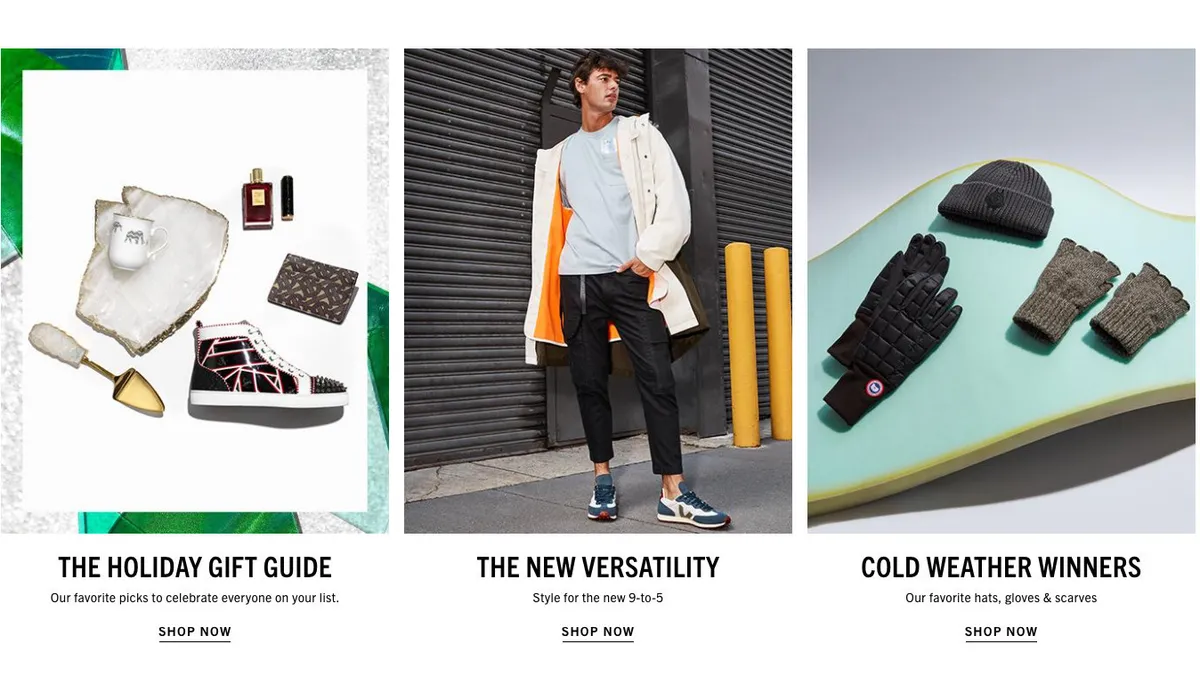Dive Brief:
-
The e-commerce business affiliated with Saks Fifth Avenue recently got a cash infusion from longtime financial partners Pathlight Capital and Bank of America, the company confirmed by email. Women’s Wear Daily first reported the news.
-
“As expected, Saks has closed a transaction with Pathlight Capital and Bank of America, securing up to $60 million in incremental liquidity while maintaining our low debt levels,” a Saks spokesperson said in an emailed statement. “The additional capital enhances our financial position as we continue to navigate the challenging macro-environment. As long-time financing partners to Saks, we are grateful for Pathlight and Bank of America’s continued confidence in our business.”
-
Earlier this year the HBC-owned luxury website had indicated it was close to securing additional capital following late payments, according to a March report from Janine Stichter, BTIG managing director and consumer retail and lifestyle brands analyst.
Dive Insight:
The separation of Saks Fifth Avenue’s online and offline operations centered on the notion that the e-commerce business, thanks to its tech prowess and appeal to young shoppers, was more valuable than its legacy brick and mortar and needed to be unleashed.
But signs have emerged that operating online can be a drag on profitability. A few luxury players in particular have faltered recently, with Farfetch facing downgrades before being acquired by e-commerce platform Coupang for $500 million. Last month luxury site Matches went bankrupt just months after it was acquired by Frasers Group for $66 million.
Early last year Saks itself laid off about 100 people, half of them in tech, and closed a fulfillment center months later. The other e-retailers under the HBC umbrella, which have similarly split off their store units, also resorted to layoffs early in 2023.
In Q4, Saks.com’s gross merchandise value fell 8% year over year, an improvement from Q3’s 19% decline, according to the research from BTIG’s Stichter. That performance points to a “challenged but stabilizing” performance in luxury overall, though online players could be vulnerable to competition, according to that report.
“The luxury segment remains challenged but is showing signs of stabilization, as we saw with Kering's results [including] improvement at Gucci,” Stichter said. “Separately, the weakness and capital constraints at many multi-brand lux e-comm retailers opens the window for [Revolve’s] FWRD brand to go on offense and take share.”















